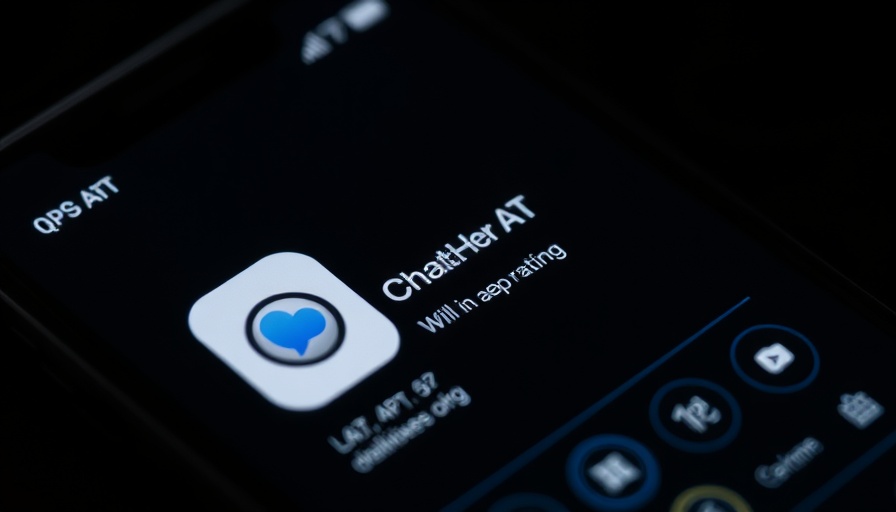
Artificial Intelligence Meets Higher Education: A Controversial Union
OpenAI's recent initiative to embed ChatGPT into college campuses is stirring significant debate among educators and students alike. Initially met with skepticism due to concerns over misinformation, reliance on AI tools is now being embraced by some institutions as they seek innovative ways to enhance the learning experience. Schools like the University of Maryland and Duke University have already begun using the premium ChatGPT Edu service, suggesting that AI could play a role in supporting roles traditionally held by humans, from tutoring to career guidance.
Are Chatbots Setting a New Standard?
The College experience is meant to foster critical thinking, creativity, and social skills; core components that may inadvertently be undermined by the reliance on AI. A recent study revealed that over-reliance on AI tools can weaken critical thinking abilities, as students may prefer the convenience of AI assistance over engaging deeply with the material. Educators worry that this approach may lead to a scenario where learning is viewed as less of a process and more of a transaction, creating an environment where valuable skills are neglected.
The Double-Edged Sword of AI Integration
As educational institutions move forward with AI integration, they face a critical challenge: finding the balance between utilizing technology and preserving traditional learning methods. The promise of personalized AI accounts that cater to individual student needs sounds appealing, but could this lead to a ‘one-size-fits-all’ approach? AI responses are often generic and lack the nuance inherent in human tutoring. Therefore, while AI in education offers exciting possibilities, it raises the question of whether machines can truly match the depth of human mentorship.
What Are the Risks of AI in Education?
Universities that welcome AI into their curriculum may inadvertently divert funds and efforts away from other essential aspects of student life. Human interactions, which are crucial to fostering community and belonging on campus, risk taking a backseat as AI tools take center stage. Research suggests that building relationships and developing emotional intelligence are vital to students' experiences, particularly in formative years. Eliminating human interaction for convenience could lead to a generation less adept at instinctual communication and interpersonal skills.
Future Outlook for AI in Academic Settings
The ongoing evolution of AI technology in education will surely spark discussions around its role long into the future. With companies like Elon Musk’s xAI and Google also entering the fray, students are being increasingly exposed to AI’s presence in their educational journeys. As noted by critics, if universities opt to fully embrace AI, they may overlook significant learning opportunities that rely heavily on social interaction and critical thinking. Discussions about how AI can be utilized responsibly must continue to ensure that while students receive support from these technologies, they do not lose the crucial elements of education that emphasize engagement and collaboration.
Conclusion: Navigating the AI Landscape in Education
As institutions and students navigate this landscape, it's essential to emphasize the importance of balancing technology with human engagement. Colleges face a pivotal moment where the decision to invest in AI tools can either enhance or undermine the learning experience. Future dialogues must focus on harnessing AI's potential while retaining the invaluable aspects of education, ultimately fostering an environment where technology and human connection coalesce harmoniously.
 Add Row
Add Row  Add
Add 




 Add Row
Add Row  Add
Add 
Write A Comment